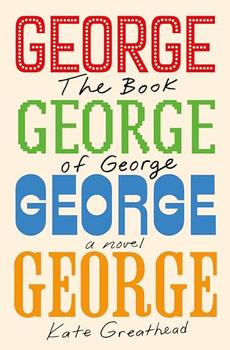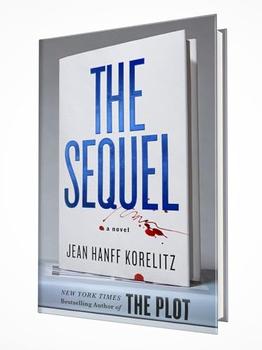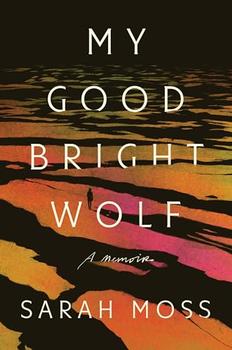Summary | Excerpt | Reading Guide | Reviews | Beyond the Book | Readalikes | Genres & Themes | Author Bio

Dream of Cream
A white boy rode flatfoot on a skateboard, towed along, hand to shoulder, by a black boy pedaling a brakeless fixed-gear bike. Dark August morning, deep in the Flatlands. Hiss of tires. Granular unraveling of skateboard wheels against asphalt. Summertime Berkeley giving off her old-lady smell, nine different styles of jasmine and a squirt of he-cat.
The black boy raised up, let go of the handlebars. The white boy uncoupled the cars of their little train. Crossing his arms, the black boy gripped his T-shirt at the hem and scissored it over his head. He lingered inside the shirt, in no kind of hurry, as they rolled toward the next pool of ebbing streetlight. In a moment, maybe, the black boy would tug the T-shirt the rest of the way off and fly it like a banner from his back pocket. The white boy would kick, push, and reach out, feeling for the spark of bare brown skin against his palm. But for now the kid on the skateboard just coasted along behind the blind daredevil, drafting.
• • •
Moonfaced, mountainous, moderately stoned, Archy Stallings manned the front counter of Brokeland Records, holding a random baby, wearing a tan corduroy suit over a pumpkin-bright turtleneck that reinforced his noted yet not disadvantageous resemblance to Gamera, the giant mutant flying tortoise of Japanese cinema. He had the kid tucked up under his left arm as, with his free right hand, he worked through the eighth of fifteen crates from the Benezra estate, the records in crate number 8 favoring, like Archy, the belly meat of jazz, salty and well marbled with funk. Electric Byrd (Blue Note, 1970). Johnny Hammond. Melvin Sparks’s first two solo albums. Charles Kynard, Wa-Tu-Wa-Zui (Prestige, 1971). As he inventoried the lot, Archy listened, at times screwing up his eyes, to the dead man’s minty quadrophonic pressing of Airto’s Fingers (CTI, 1972) played through the store’s trusty Quadaptor, a sweet gizmo that had been hand-dived from a Dumpster by Nat Jaffe and refurbished by Archy, a former army helicopter electrician holding 37.5 percent—last time he’d bothered to check—of a bachelor’s in electrical engineering from SF State.
The science of cataloging one-handed: Pluck a record from the crate, tease the paper sleeve out of the jacket. Sneak your fingers into the sleeve. Waiter the platter out with your fingertips touching nothing but label. Angle the disc to the morning light pouring through the plate window. That all-revealing, even-toned East Bay light, keen and forgiving, always ready to tell you the truth about a record’s condition. (Though Nat Jaffe claimed it was not the light but the window, a big solid plate of Pittsburgh glass vaccinated against all forms of bullshit during the period of sixty-odd years when the space currently housing Brokeland Records had been known as Spencer’s Barbershop.)
Archy swayed, eyes closed, grooving on the heft of the baby, on the smell of grease coming off of Ringo Thielmann’s bass line, on the memory of the upraised eyes of Elsabet Getachew as she gave him head yesterday in the private dining room of the Queen of Sheba Ethiopian restaurant. Recollecting the catenary arch of her upper lip, the tip of her tongue going addis ababa along the E string of his dick. Swaying, grooving, feeling on that Saturday morning, just before the boots of the neighborhood tracked bad news through his front door, like he could carry on that way all day, forever.
“Poor Bob Benezra,” Archy said to the random baby. “I did not know him, but I feel sorry for him, leaving all these beautiful records. That’s how come I have to be an atheist, right there, Rolando, seeing all this fine vinyl the poor man had to leave behind.” The baby not too young to start knowing the ledge, the cold truth, the life-and-death facts of it all. “What kind of heaven is that, you can’t have your records?”
Excerpted from Telegraph Avenue by Michael Chabon. Copyright © 2012 by Michael Chabon. Excerpted by permission of Harper. All rights reserved. No part of this excerpt may be reproduced or reprinted without permission in writing from the publisher.




The silence between the notes is as important as the notes themselves.
Click Here to find out who said this, as well as discovering other famous literary quotes!
Your guide toexceptional books
BookBrowse seeks out and recommends the best in contemporary fiction and nonfiction—books that not only engage and entertain but also deepen our understanding of ourselves and the world around us.